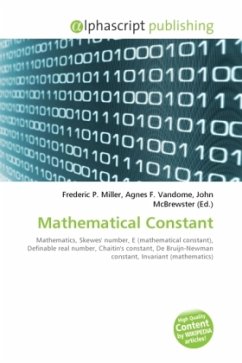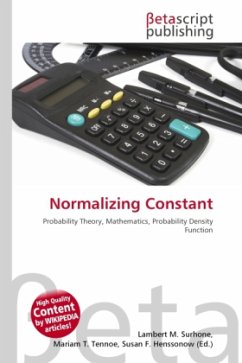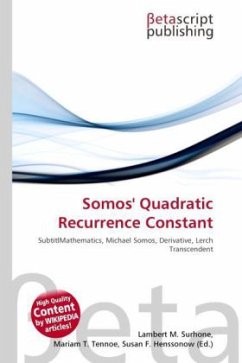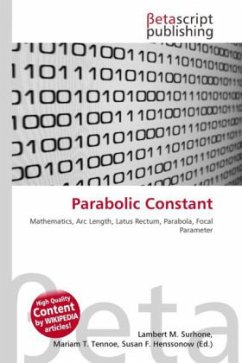
e (Mathematical Constant)
Versandkostenfrei!
Versandfertig in 6-10 Tagen
36,99 €
inkl. MwSt.

PAYBACK Punkte
18 °P sammeln!
The mathematical constant e is the unique real number such that the value of the derivative (slope of the tangent line) of the function f(x) = ex at the point x = 0 is exactly 1.[1] The function ex so defined is called the exponential function, and its inverse is the natural logarithm, or logarithm to base e. The number e is also commonly defined as the base of the natural logarithm (using an integral to define the latter), as the limit of a certain sequence, or as the sum of a certain series (see the alternative characterizations, below). e is one of the most important numbers in mathematics,...
The mathematical constant e is the unique real number such that the value of the derivative (slope of the tangent line) of the function f(x) = ex at the point x = 0 is exactly 1.[1] The function ex so defined is called the exponential function, and its inverse is the natural logarithm, or logarithm to base e. The number e is also commonly defined as the base of the natural logarithm (using an integral to define the latter), as the limit of a certain sequence, or as the sum of a certain series (see the alternative characterizations, below). e is one of the most important numbers in mathematics,[2] alongside the additive and multiplicative identities 0 and 1, the constant , and the imaginary unit i. (These are the five constants appearing in one formulation of Euler's identity.) The number e is sometimes called Euler's number after the Swiss mathematician Leonhard Euler. (e is not to be confused with the Euler Mascheroni constant, sometimes called simply Euler's constant.) The number e is irrational; it is not a ratio of integers. Furthermore, it is transcendental; it is not a root of any non-zero polynomial with rational coefficients.












